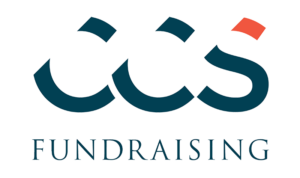CCS has been inspired by how our nonprofit partners across all sectors have responded rapidly, and successfully, to the challenges of 2020. With the holiday season in full swing and the eight nights of Hanukkah approaching, CCS compiled eight lessons from Jewish clients across the country who have navigated fundraising during the COVID-19 pandemic in noteworthy ways.
One: Embrace virtual engagement.
The COVID-19 pandemic provided an opportunity for synagogues to reach a much larger and more diverse audience this High Holy Day season, with congregants tuning in from college dorms, nursing homes, and living rooms across the country. Several synagogue clients reported an exceedingly positive response to online services, resulting in an increase in member engagement and a surge in annual giving in the fall. A synagogue in New York City is already working on a hybrid model to have both in-person and virtual events in 2021 to reach all members of their congregation.
Two: Send materials in advance.
One Jewish day school has had notable success mailing gift proposals ahead of virtual solicitation meetings, most recently sending a seven-figure proposal to a prospective lead donor one week ahead of time. This enables the meeting to be more conversational in nature, focusing on the donor’s own thoughts and reactions rather than spending a significant portion of the meeting walking through the document itself. In turn, the school has shortened the window between soliciting and closing major gifts, allowing leadership to refocus their efforts on cultivating new donors.
Three: Take advantage of flexible scheduling.
Working from home has enabled organizations to get in front of constituents and donors more frequently by scheduling shorter, regular touchpoints. A Jewish social services organization has scheduled quick ongoing meetings for their campaign committee to convene. They have reported a significant uptick in meeting attendance now that the evening meetings are held entirely online.
Four: Create intimate in-person and virtual events.
A synagogue in Boston hosted intimate cultivation events, with an option for donors to join virtually or in-person. To ensure physical distance protocol, in-person attendance was limited to the first twelve RSVPs. With some donors reporting “Zoom fatigue,” the in-person option offered a refreshing and meaningful experience for those looking to reconnect with their synagogue community. If you decide to pursue an in-person event, be sure to follow the recommended safety measures for guests and staff.
Five: Make your case for support come alive.
A Jewish museum in California worked with their architect to create a “virtual flyover” and walkthrough of their capital renovation. Donors engaged with the digital creation from home to see the project as if they were walking through the building.
Six: Adapt – do not cancel—your plans.
Instead of canceling their campaign feasibility study due to the pandemic, a synagogue in Los Angeles refocused their efforts on individuals who could make both short-term gifts toward COVID-19 support and long-term campaign investments. Interview strategy became more conversational and open-ended to include ample time for dialogue and questions. The synagogue was able to highlight the steps they had taken to adapt to the pandemic and receive support from community members.
Seven: Craft tailored, innovative solicitation strategies.
During challenging times, we are seeing donors focus their giving on causes that matter most to them. A synagogue in Boston built a creative major gift proposal, outlining the opportunity to fund synergies between a donor family’s synagogue and a local Jewish day school. This enabled a new partnership model for the synagogue and school moving forward and allowed the donor family to support two causes at once.
Eight: Focus on professional development.
The need for strong fundraising leadership continues to be increasingly critical to an organization’s success. A Jewish foundation undergoing a major restructuring of its development program expanded an annual team gathering into a multi-day conference, made possible by the virtual setting. The foundation was able to bring in external speakers that laid the groundwork for the more rigorous, strategic, data-driven approach to fundraising that the foundation was looking to implement, while providing valuable outside expertise and perspectives to their eager team.
Much as, in the Hanukkah story, the oil that was meant for one night lasted for eight, our hope is that lessons learned during this current challenging moment will resonate far into your organization’s bright future.
